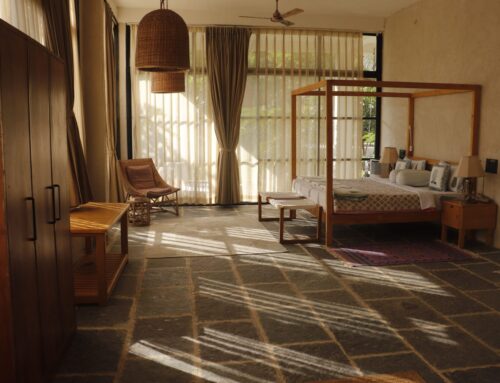India’s super-rich a quintessentially complicated bunch
Shoba Narayan
I have a request for Paul Drummond, the boyish co-founder of Quintessentially, the UK-based luxury concierge service: can he get me into elBulli before it closes forever? If he can, here is one Indian who will sign up for his company’s services on the spot. Mr Drummond was in India recently to drum up (sorry, couldn’t resist) clients for his bespoke concierge and luxury lifestyle group. As a fast-growing economy, India is “a very serious market for us”, he said. To that end, Quintessentially has tied up with Lodha Developers who are constructing Mumbai’s World One, which, when launched, was touted to become the tallest all-residential tower in the world. Now though, Dubai’s Pentominium, currently unfinished, is expected to take that title. World One is scheduled to be completed in 2014 and Quintessentially’s services are on offer to all 300 apartments, which are priced between US$1.6 million (Dh5.9m) and $10.8m.
Quintessentially’s entry into India makes sense: right place, right time. With 49 dollar billionaires, India stands fifth in the world in its billionaire count, after the US, China, Russia and Germany. It has just increased the number of its millionaires by 51 per cent – the second-biggest biggest jump in the Asia-Pacific region after Hong Kong – from 84,000 to 126,700, according to the 2010 World Wealth Report issued by Capgemini and Merrill Lynch Wealth Management. Wealth managers say even these large numbers underestimate the true wealth in India, given its “black money billionaires” who literally have wads of cash tucked under the floor and have to figure out a way to spend it. Many of them prefer to spend it abroad, which plays in nicely with Quintessentially’s property services. Indians overtook Britons as the seventh-highest big spenders in hotels, according to the latest Hotel Price Index survey, conducted by Hotels.com.
A magazine profile of Nita Ambani, the wife of Mukesh Ambani, Asia’s richest man with an estimated net worth of $29 billion, is a case in point. In the article, the interviewer asks Mrs Ambani the price of one kilogram of vegetables, almost as a test. Does Mrs Ambani know the price of a kilo of tomatoes? She claims she runs a tight ship, visiting her kitchen every morning and knows exactly how much the family spends on groceries. You could almost see Indians everywhere nodding approvingly when they read this. The Ambanis may be building a $2bn home, the most expensive residence in the world but, by Jove, the Missus knows the price of carrots and tomatoes. Try fleecing her at the bazaar. This is the type of customer that Mr Drummond and company will have to deal with.
Quintessentially states its customers are famously picky: demanding that a birthday cake be delivered to a distant Moroccan island; or asking for seats at exclusive fashion shows and art auctions. Indian customers will have the same requests with added layers of complication. Imagine the conversation between Quintessentially and Mrs Ambani, who perhaps wants a similar cake delivered to an uninhabited Greek island where a relative is doing solitary yoga.
“How will you get there — by car or boat? Better take the boat because gas is cheaper. Oh, and by the way, my assistants have charted the shortest route between the mainland and the island so your people had better stick to that. And each account statement is looked over by me personally, so the numbers had better add up.” Quintessentially will have to carefully calibrate its services to manage the Jekyll and Hyde personalities of India’s super-rich, who still haggle over the price of groceries but wildly overspend on other things; weddings now routinely cost $5m and more. Wealthy Indians prefer to have their children married abroad – a recent one took place at the Ferragamo mansion outside Florence in Italy – to escape prying, poverty-stricken eyes. Brand names are big among status-conscious Indians and Quintessentially’s ability to procure an exclusive Birkin bag at short notice (in time for a niece’s wedding next week, perhaps) will gratify its Indian clients. The trick is to spot them.
As the author and marketing consultant Santosh Desai says, an Indian millionaire could just as well be a farmer buying a souped-up tractor as a senior manager in a big city. They may hide their wealth from the income tax people but have no qualms about buying a Ferrari “all-cash” at the showroom . Does Quintessentially even want these people as clients? A few years ago, Ferrari was in the news because it claimed to have turned away 700 customers who didn’t “suit [the] product profile”. One way to spot clients is what Quintessentially has just done: through the property developers. Jones Lange LaSalle, the property consultancy, estimates about 3,500 luxury homes costing $1m and above are being constructed in Mumbai. After homes come cars, brand names and exotic vacations. The frugal lifestyle of the Gandhian era is long gone. With 44 per cent of the population less than 20 years of age, India is not just a young economy – it also has the largest number of young people in the world. Indian youth is no longer shackled by the Hindu notions of detachment and contentment. My father, for instance, can afford a Cartier Tank watch but wouldn’t dream of buying one. He would think it to be an obscene, crass and unnecessary display of wealth. Young Indians on the other hand, revel in such spending.
One last thing for Mr Drummond to ponder: how is he going to say “No” to Mrs Ambani’s sister-in-law’s aunt’s nephew by marriage who will beat on his door for membership? In other words, how is he going to process the spider-web of Indian extended families? Like I said, a reservation at elBulli would do the trick for me.
Shoba Narayan is a journalist based in Bangalore and the author of Monsoon Diary




Leave A Comment